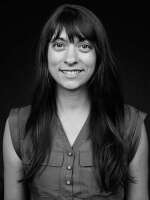It’s Saturday night. I’m at the Unitarian church in Kalispell with 30 people, and they’re here to talk about racial tolerance in the Flathead Valley. It’s a hard conversation to have, it’s uncomfortable, but most of the people in this room, like Jennifer Stebbins-Han, think it’s important.
Stebbins-Han lives in Kalispell, but she says she didn’t really know Montana until she left it.
"I think I grew up in a bubble in Montana," she says.
Stebbins-Han grew up in the Flathead Valley but left for college.
"I came back with a husband who is not white, and so experienced the valley in a different way, and it was like my eyes were open," she says.
Now, she says she sees a different side of the Flathead Valley, one dominated by fear and misunderstanding.
"I didn’t realize how deep some of these issues run with racism and fear," she says.
She sees it because Young, her husband, who’s Korean-American, lives it.
"There are some things that as a person that's a minority that you see that other people don't see, not because of blatant ignorance or a willful ignorance, but sometimes people’s lives are just different than yours," he says.
Young and Jennifer say they’re not facing the overt racism they see on the news, like police brutality or being denied service at a shop. The racism they’re talking about is little things; Young being asked why immigrants can’t just learn English, or people second-guessing his occupation. But little things add up, and even with friends he finds himself having to explain that he’s a person, not a representative for a group.
"That is what’s hard, is how do you break in to someone else's world and say the world may be slightly differently experienced by other people than how you've experienced it," he says.
Young and Jennifer say as a family, they talk about it with their young kids all the time.
"It's a constant conversation in our family," Jennifer says. "How does race affect our lives, and how does it affect our kids' lives?"
They’re also always looking for better ways to have those conversations. That’s why they’re at the Glacier Unitarian Universalist Fellowship in Kalispell on Saturday night for a lecture hosted byLove Lives Here, the Flathead Valley affiliate of the Montana Human Rights Network.
"Yeah, I think the Flathead Valley definitely swings more towards a message of exclusion and fear," says Will Randall, co-chair of Love Lives Here. Saturday’s talk focused on the national Black Lives Matter movement and why it’s relevant here in Montana, where almost 90 percent of the people who live here identify as white.
Randall says the event was organized in part to push back against a slew of recent talks put on by conservative groups like ACT For America, which has a strong following in the valley.
"ACT for America has been putting on events demonizing people who are different -- immigrants, refugees, Muslims and now Black Lives Matter," he says.
A speaker at a recent ACT event said Black Lives Matter is promoting a communist agenda with the Muslim Brotherhood and interfaith groups to destroy the nation. ACT for America describes itself as a grassroots national security organization focused on educating and mobilizing people to preserve American culture.
"We're here to say we don't have to be afraid," Randall says. "Let's talk, let's learn more, let's talk to the people involved, and then we can move forward in a productive way."
Saturday’s lecture featured Tobin Miller Shearer, director of the African-American Studies Program at the University of Montana. Shearer delivered a semester’s worth of history and race lessons packed into an hour-long talk.
"My goal tonight in talking together is to offer a way of thinking about racism," Shearer said.
Shearer said Montana’s present-day whiteness masks a long history of African-Americans in the state, along with their systematic exclusion through so-called “sundown laws,” which banned African-Americans from city centers after dark.
"The state of Montana has been and continues to be a breeding ground for racism," he said. "So when I say why black lives matter, it's because in this state, so often they haven't."
More recently, western Montana has seen a rise in white nationalist groups and anti-immigration sentiment. Even though Shearer focused mostly on black lives for his talk, Kalispell resident Jennifer Stebbins-Han heard a lot she relates to in her life.
"When he talked about how this is a breeding ground for racism, I feel like a lot of people are in denial of that fact," she says. "I'm going to live in Montana and I want it to be a better place for my kids. What else am I supposed to do other than educate people as kindly as I can? I’m not yelling at them or forcing things down their throat. I’m just offering a different perspective."
One of the co-founders of the national Black Lives Matter movement, Patrisse Cullors, will speak at the University of Montana on November 2nd. Information about Cullors’ talk on her work with Black Lives Matters and the racial issues they are dealing with can be found here.





